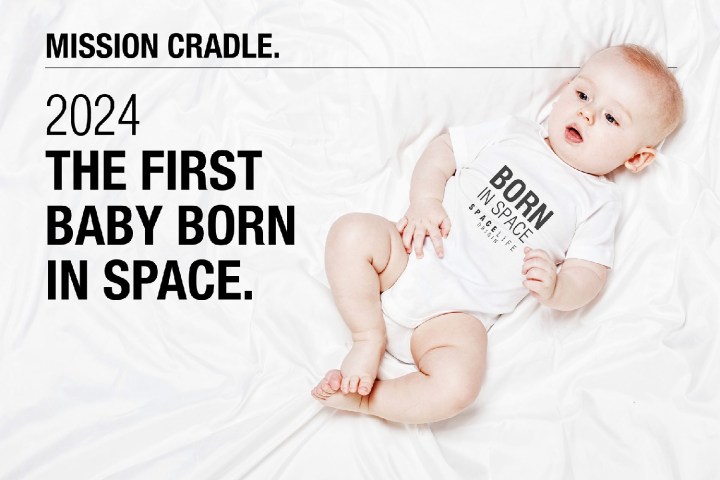
From Elon Musk to Virgin Galactic mastermind Richard Branson, plenty of big-thinking entrepreneurs have plans to take regular citizens into space. Netherlands-based startup SpaceLife Origin has an even bolder, far more “out there” idea. It wants to be the company responsible for delivering the first baby in space. And it wants to do it by 2024. Because, you know, science.
“We owe it to our children and future generations,” Egbert Edelbroek, one of the company’s executives, told Digital Trends. “Humanity is facing increasing threats to life on Earth: Global warming, nuclear threats, [and] large asteroid collisions. NASA, ESA, SpaceX, and others are planning independent human settlements on the moon, and Mars as a backup plan. These efforts also require the capability to reproduce. That element is our contribution. We hope an important side effect of our plans is the boosting of the awareness [and urgency] for a much more sustainable lifestyle to avoid and slow down the most important threat of global warming.”
The prospect of reproduction in space is an area that’s been studied before — although never with humans. As a recent article in The Atlantic noted, these efforts have instead focused on small animals including mice, fish, and lizards. However, this has been enough to raise some potential challenges, such as the impact of zero gravity on newly born offspring. These are just a few of the issues that might face an attempt at a human birth outside of Earth’s atmosphere.
“Our international space law experts see no regulatory obstacles in our missions program,” Edelbroek said. However, he did note that there are some regional differences in regulations around handling embryos which may exclude certain clients from more conservative regions.”
SpaceLife Origin plans multiple missions with names including “Ark,” “Lotus,” and, ultimately, “Cradle.” The last of these three, as its mission title suggests, hopes to enable a pregnant woman to give birth in space. This will be achieved during a 24 to 36 hour mission, guided by a team of medical experts.
Will it actually happen? It sounds like there are multiple ethical and technological hurdles to leap before we get there. Then again, in a world in which 3D printing in space and reusable rockets that can land vertically are both real things, we’re no longer sure what to write off as sheer science fiction.


